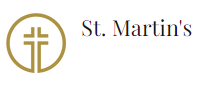Lenten Practices: Prayer, Fasting, and Almsgiving
In the earliest days of Christianity, converts to the faith underwent a rigorous process of study and initiation which lasted several years. Such rigor was necessary because of the threat of persecution by the Roman Empire; so the Church needed to ensure that a person seeking baptism knew that their conversion could lead to martyrdom. Baptismal preparation concluded with a final 40 day period of “purification and enlightenment” culminating with their baptisms at Easter. In time, the baptized fasted during this 40 day period in solidarity with the catechumens. Today, we see the 40 days of Lent as a special time of conversion, repentance, and growing closer to God. We reflect on the things in our lives which have led us away from God, and we turn our hearts towards God again.
The Church has traditionally recommended prayer, fasting, and almsgiving as practices that help us refocus our attention on God and the way of love. Any form of prayer which helps you quiet your heart and mind will help you discern the presence of God in your life. If possible, especially during the season of Lent, try to commit to a daily practice of prayer.
Fasting includes the special days of fasting and abstinence, Ash Wednesday, and Fridays, but the practice of “giving up something” is essentially fasting. Giving up a small pleasure or a bad habit, and offering that to God can lead us back to God’s way of love by re-centering our lives in God and refocusing our desires on the things that God desires. It can also help us strengthen our trust in God, and, depending on what we give up, enable us to develop more empathy for the hungry and the poor as we fast in solidarity with them.
Almsgiving is a way of sharing our time and treasure with the poor, and shouldn’t be seen as a replacement for fasting and prayer. Prayer and fasting motivate our service, and our service informs our prayer and fasting. You can engage in this Lenten practice by volunteering or by supporting service organizations financially. Some people combine the three practices in an intentional way which helps them care for the poor in a more holistic way. For example, if someone gives up their daily trip to Starbucks for Lent, they may decide to give the money that they would have spent at Starbucks to the local Food Bank, and commit to remembering the hungry in their evening prayers.
However you choose to observe this holy season, I pray that you will be empowered by the Holy Spirit to grow closer to God in the way of love. I hope you will learn to be kind and gentle with yourself, to forgive yourself for the mistakes you have made, and to follow Jesus into the way of loving God with all of your beings, as you love your neighbor, as you love yourself.
